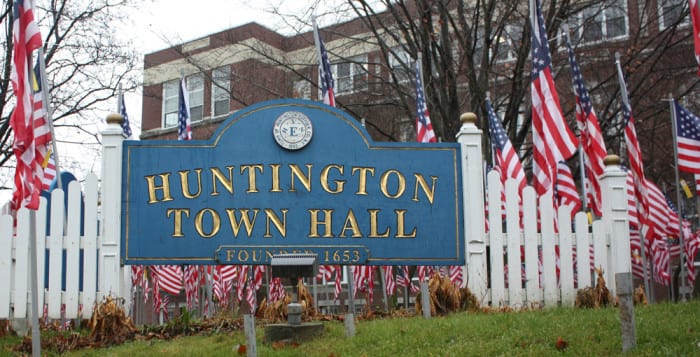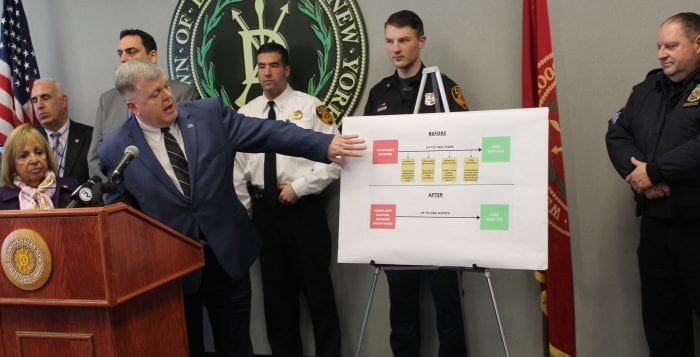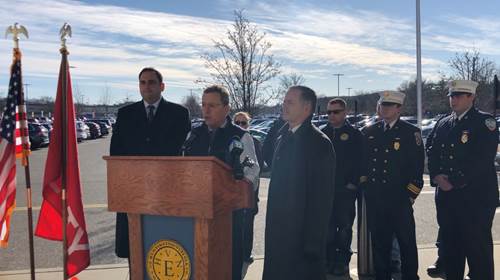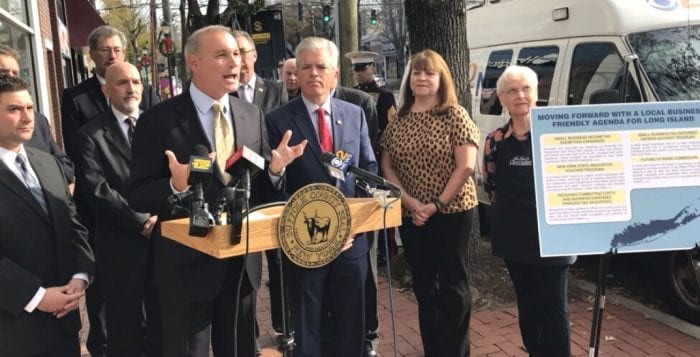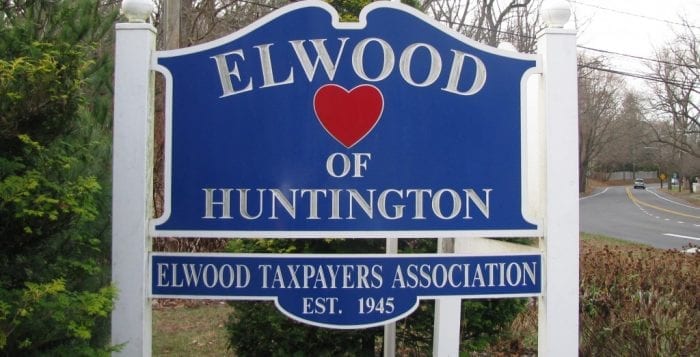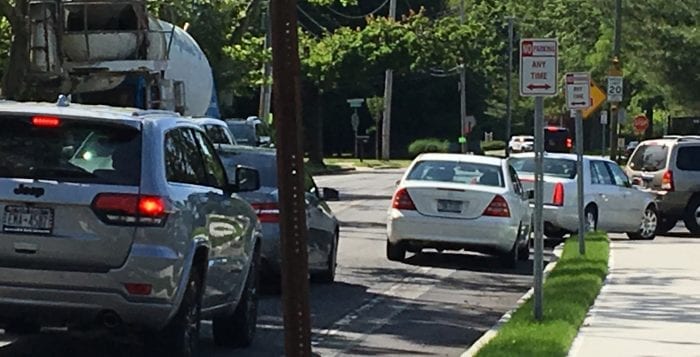Town of Huntington Supervisor Chad Lupinacci (R) issued an executive order declaring a disaster
emergency in the town Thursday, March 12.
The executive order authorizies the closure of some town facilities as additional measures are being taken to prevent the spread of the coronavirus.
“In an abundance of caution, the town is temporarily closing some of our facilities to ensure
vulnerable members of our community are not put at unnecessary risk,” Lupinacci said. “Declaring an emergency allows us to suspend competitive bidding procedures for the purchase of critical supplies and services, deny entry at any town facility to individuals presenting symptoms or meeting the criteria of exposure for coronavirus, and appoint personnel to fill vacancies or perform emergency services and duties.”
HUNTINGTON TOWN HALL
Town Hall remains open however additional signage and a more thorough screening of visitors will be implemented starting Friday, March 13. Visitors who appear symptomatic will be denied entry to town facilities.
ANIMAL SHELTER (DOG SHELTER ONLY)
The Town of Huntington Animal Shelter, located at 106 Deposit Road, East Northport, is closed
to visitors and volunteers after an employee called in to report symptoms Thursday, March 12. Staff will continue to take in new dogs to the facility, greeting drop-offs at the front entrance to the shelter during normal hours of operation and will be taking care of the animals at the shelter. Calling the shelter ahead of your visit at 631-754-8722 is suggested but not required. The shelter is scheduled to reopen on Monday, March 16.
SENIOR DIVISION
The Town of Huntington Senior Center, located at 423 Park Avenue, Huntington, and Senior
Division facilities will be closed indefinitely beginning Friday, March 13, including the Adult Day
Care facility, the Senior Beach House, located at 239 Little Neck Road, Centerport, and all Senior
Clubs.
Congregate Meals (frozen meals) will be available during normal hours for pickup at the
Senior Center facility (employees will bring the frozen meals outside). There is no change to the
Home Delivered Meal Program, Expanded In-Home Services for the Elderly Program, or Residential Repair Services. Employees will be on-hand to answer calls from residents during normal hours at 631-351-3253.
HART BUS FIXED ROUTES and PARATRANSIT
HART Bus Fixed Route Service and Paratransit Service remain unaffected; however, residents are
urged to avoid riding HART buses if presenting symptoms or if they meet any of the criteria for
exposure. Healthy individuals should only use HART for essential travel.
PARKS and RECREATION
The Parks and Recreation Department has cancelled Saturday programs serving special needs
individuals. The Dix Hills Ice Rink remains open.
More information can be found at www.HuntingtonNY.gov,.
Lupinacci urged members of the public and town employees who are sick, showing symptoms of coronavirus or at-risk to stay home and call their doctor to schedule an appointment.

